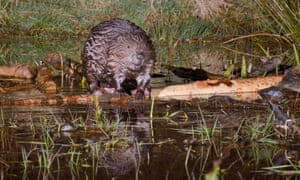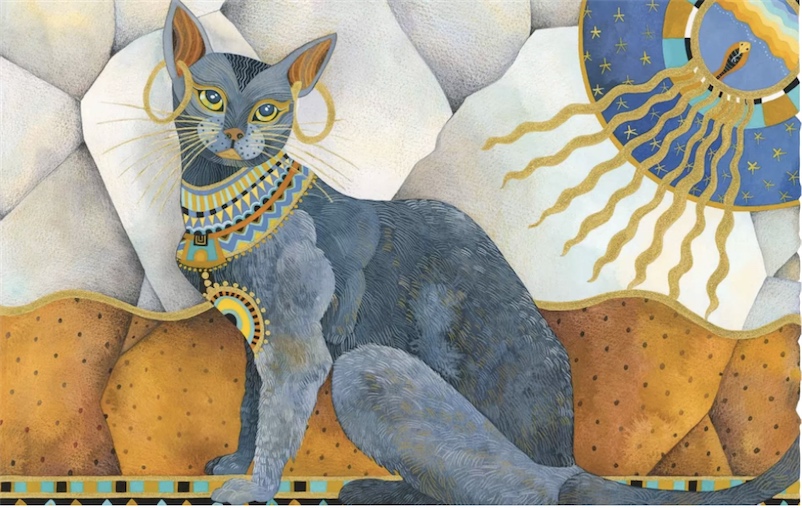via the Guardian by Damian Carrington, environment editor

Eurasian beaver (Castor fiber) balanced on a branch it has cut at a feeding station in its pond at Tayside, Scotland. Photograph: Nick Upton/Alamy Stock Photo
The extraordinary ability of eager beavers to engineer degraded land into wildlife-rich wetlands has been revealed by a new study in Scotland.
Scientists studied the work of a group of four re-introduced beavers over a decade and found their water engineering prowess created almost 200m of dams, 500m of canals and an acre of ponds. The result was a landscape “almost unrecognisable” from the original pasture that was drained over 200 years ago, with the number of plant species up by nearly 50% and richly varied habitats established across the 30 acre site.
Continue reading
=============================
via 3 Quarks Daily: Jimmy Soni and Rob Goodman in IEEE Spectrum

Photo: Nokia Bell Labs
Looking back on the last months of 1940, Claude Shannon was quite open about his desire to avoid the World War II draft: “Things were moving fast there, and I could smell the war coming along. And it seemed to me I would be safer working full-time for the war effort, safer against the draft, which I didn’t exactly fancy. I was a frail man, as I am now. … I was trying to play the game, to the best of my ability. But not only that, I thought I’d probably contribute a hell of a lot more.”
Continue reading
=============================
via Interesting Literature
Oxford has been home to a number of poets, and has educated far more. Some of them have seen fit to celebrate the city of Oxford in their poetry – below are eight of the finest Oxford poems in all of English literature.
Continue reading
=============================
via Boing Boing by Andrea James

YouTuber Oxalis shared Ryan Deboodt’s gorgeous footage of the world’s largest cave, Vietnam’s Hang Son Doong.
Continue reading and do not stop at the first video – there is more!
=============================
via Big Think by Robby Berman
From the point of view of the Alaska Dispatch News, it’s clear who the victims are in this story: fishermen. And the perps are readily identified, too: Orcas, or killer whales. Animal lovers, not to mention vegetarians, might well see these labels flipped. It depends on who, according to you, gets to eat the fish in the ocean. It’s also a story of how crime – if it’s really a crime – does pay. The News spoke to several fishermen about what’s going on.
Continue reading
=============================
via OUP Blog by Anatoly Liberman

The sorely neglected members of etymology.
I receive all kinds of questions about etymology. Unless they are responses to my posts, they usually concern slang and exotic words. No one seems to care about and, as, at, for, and their likes. Conjunctions and prepositions are taken for granted, even though their origin is sometimes obscure and their history full of meaning. In my work, I have dealt only with if and yet in detail and found both etymologies highly complicated.
Continue reading
=============================
via Boing Boing by David Pescovitz

In many, animal species are domesticated when humans bring them into their homes whether they want to be there or not. For example, it's mostly accepted that humans domesticated wolves, breeding them in captivity until they became the modern dogs we love today. Now, a new study of cat genetics reveals that cats just kind of hung around humans for thousands of years before they were domesticated.
Continue reading
=============================
via OUP Blog by Arjun Jayadev

Currencies by 16:9clue. CC-BY-2.0 via Flickr.
The evolution of the distribution of income among individuals within countries and across the world has been the subject of considerable academic and popular commentary in the recent past. Works such as Thomas Piketty’s Capital in the 21st Century or Joseph Stiglitz’s The Price of Inequality have become unlikely bestsellers, garnering a startling degree of both academic and popular interest.
Continue reading
=============================
via Killer Web Directory by Administrator
Here is a useful infographic from the guys at Fish4Parts which tries to match their favourite engineering elements to the periodic table. From bearings to gear cutting, nails to toe-cap shoes, all the way to computer aided design.
Oops, image vanished!
See the full size version @ Fish4Parts
=============================
The postmodern carnival has arrived, and there are good reasons to prefer François Rabelais’s version
via Arts & Letters Daily: by Robert D Zaretsky, edited by Sam Haselby
In early 16th-century France, François Rabelais, who had already made his reputation as a doctor of theology and of medicine, a scholar and a scallywag, turned his hand to novel-writing. Several years, and several hundred pages later, he loosed Gargantua and Pantagruel (1532-64) on the world. Driven by an insatiable hunger for both food and knowledge, endowed with great intellectual as well as physical brawn, and prone to laughter as seismic as an earthquake, the eponymous father-and-son duo overwhelm. No matter how you approach them, they are volcanic and titanic, immense and elemental.
In a word, they’re … well, grotesque.
And this is how Rabelais wanted it. For the good doctor, grotesqueness was not an insult, but instead an insight into the human condition. More than half a millennium later, in a world dominated by indignation and outrage, and largely abandoned by laughter, a dose of the grotesque might help to better digest events, if only by having a good – and right kind of – laugh.
Continue reading
No comments:
Post a Comment